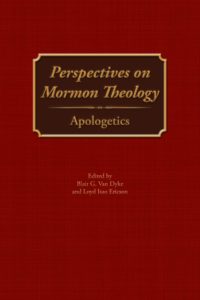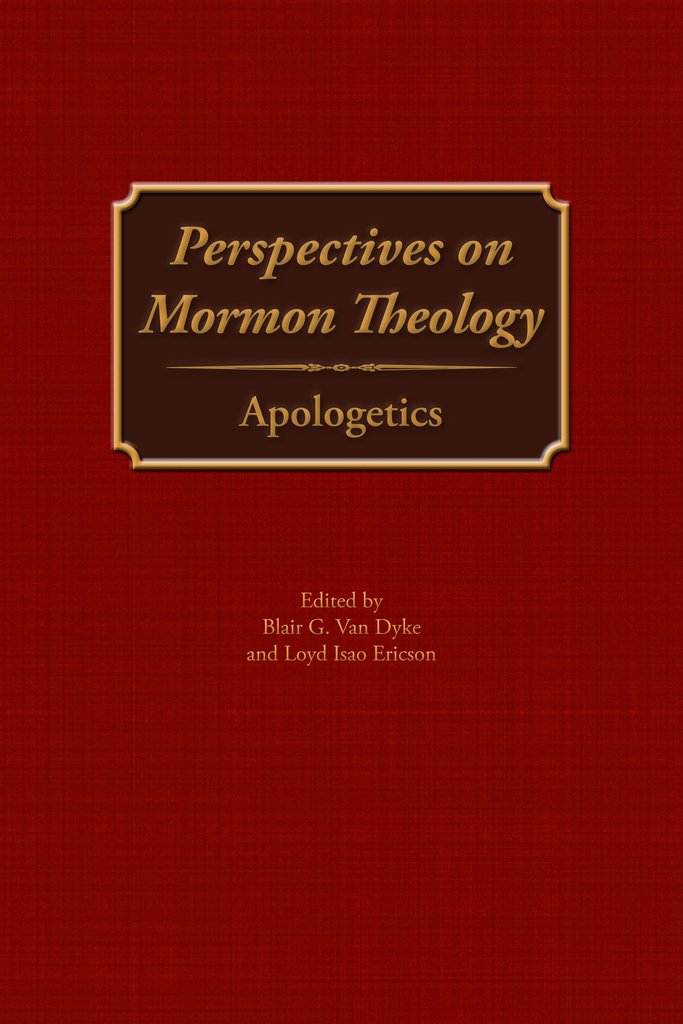 In this, the second installment in a series of co-hosted and co-released shows related to Mormon Apologetics, Mormon Matters and Mormon Stories hosts Dan Wotherspoon and John Dehlin interview and engage with two wonderful, bright, and articulate voices in Mormon Studies: Loyd Isao Ericson, from Greg Kofford Books and co-editor of the volume Perspectives in Mormon Theology: Apologetics, and Bert Fuller, a doctoral candidate at the University of Toronto and a former editor at both BYU’s Religious Studies Center and the Maxwell Institute for Religious Scholarship.
In this, the second installment in a series of co-hosted and co-released shows related to Mormon Apologetics, Mormon Matters and Mormon Stories hosts Dan Wotherspoon and John Dehlin interview and engage with two wonderful, bright, and articulate voices in Mormon Studies: Loyd Isao Ericson, from Greg Kofford Books and co-editor of the volume Perspectives in Mormon Theology: Apologetics, and Bert Fuller, a doctoral candidate at the University of Toronto and a former editor at both BYU’s Religious Studies Center and the Maxwell Institute for Religious Scholarship.
The podcast begins with an examination of the apologetic endeavor itself, with special attention to the arguments that it is a flawed enterprise from the start as it involves a confusion over what is being defended. It centers on the question of whether religious claims (spiritual claims and experiences that drive religious conversion and growth) can be defended or proven by the tools of scholarship. If the answer is no, if these are two quite different arenas or (in Wittgenstein’s terms, “language games”), then apologists play into and further the category mistakes inherent in the very activity itself. It also challenges common ways in which claims in one arena are said to be probative or at least should be considered in the other one.
In the final two sections, the conversations move more toward the personal experiences of those who become troubled when various truth claims they’ve held tightly to begin to crack and show their limits. Life choices have been made out of one understanding of the world, it’s purposes, and God’s will for the person, so it’s very natural that she or he should feel lost, upset, and even angry, especially if they feel that important information that provides wider contexts for the claims or actual challenges to them have been known by top church leaders and yet withheld (or worse, as in the case of excommunicating or smearing the reputations of those who alert people to these issues). Out of that discussion emerges reflections once more on the role of those who John Dehlin has labeled “neo-apologists” (those who seem to him and others to be becoming somewhat relied upon by the church to stem the tide of defections or calm troubled souls who are in faith crisis or are loved ones of those in such shifting relationship to the church and their previous beliefs) should be, as well as their obligations for full disclosure in the articles and books they write and firesides and public appearances they make of the troubling issues and counter-claims to key LDS teachings.
It’s a three-hour (!) discussion, but it never runs out of energy and models great respect for all in the conversation, whether it is fellow panelists or apologists/neo-apologists or listeners and people for whom these worldview and faith crises are very, very real.
Please listen and then share your reactions in the comments section below!
_____
Link:
Blair G. Van Dyke and Loyd Isao Ericson, eds, Perspectives in Mormon Theology: Apologetics (Greg Kofford Books, 2017)


Comments 1
One thing I think is interesting is that I think for some group of people (including not just John Dehlin but several other folks who eventually have faith crises and abandon religion), it won’t ever make sense to engage with religion outside of the “secular” claims, effects, and impacts. I think that’s why that keeps coming up.
…But I think this can be worked with to try to synthesize something with what Loyd and Dan are trying to say.
I think John’s basic argument is that we can’t get away from the secular claims, effects, and impacts of religion because (as he sees it), people join religions because of “secular” claims, effects, and impacts. People make fundamentally life-altering decisions because of those secular claims, effects, and impacts. John’s contention is that without those secular claims, effects, and impacts, Mormonism in specific (or religion in general) would be less appealing.
So, for both Loyd and Dan, who wish to assert that there’s something to religion (religious claims, effects, and impacts) that have merit that is separate and distinct from the secular, and persist despite whatever is going on in the secular (to use the extreme example…if we concede the worst of the secular accusations against Joseph, we could concede that maybe he should have been jailed…but he could still be a prophet at the same time), the question is whether or not that religious value could persist even in full disclosure of secular issues.
It seems John’s answer is a strong: “no”. To use the modified Old Car Zion analogy with Loyd’s quick response, people won’t care how comfy the seats are if the car doesn’t isn’t an ambiturner. People will not spend the price of a car for comfy seats, but they will spend the price of a car if they think the car can take them places (and can turn both ways, etc.,)
However…I’m not sure that the church itself, Loyd, or even Dan actually think the answer to that question is “Yes”.
Here’s my breakdown:
1) The church continues to promulgate a narrative that includes secular claims. Institutionally, for whatever reasons, the church is still committed to that. (Maybe it’s because, as Loyd discusses, the church has fallen prey to its own conceptual confusion. But I suspect this conceptual confusion is so thoroughgoing precisely because it helps the church institutionally — it helps them persuade people to join.)
2) For Loyd, the argument is a little less strong, but I took Loyd’s comments about myths not being “self-conscious” to imply that there is value to not be forthright about the fictitious nature of mythic events. That is, even if myths have value while not having literally occurred, that value can be obscured or destroyed if one goes around saying, “Now, this didn’t happen, but….”
3) For Dan, there seems to be a component of “living into” religiosity. The problem is that this takes time and it’s difficult to accomplish. Even if Mormonism “points outside of itself,” it’s not easy to ascertain that truth (which also probably supports why the conceptual confusion has become so prominent in the first place). The higher truths of religion may be incredibly valuable, but they are also incredibly difficult to access (all that pesky ineffability)), and you generally can’t directly impart that value. So, myths are inculcated as scaffolding to covertly prepare people to live with the religion long enough to prime them for the those higher truths.